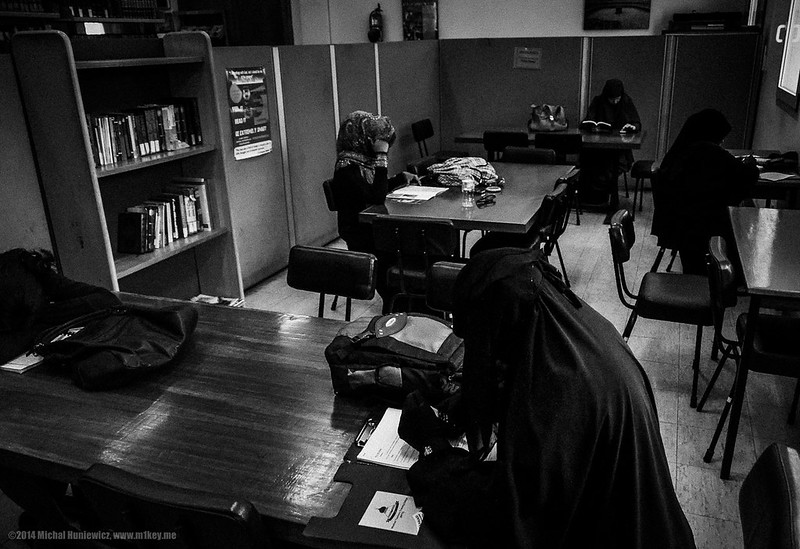4.4.7 Claims to the Sacred
In 2016, the Journal of Feminist Studies in Religion (JFSR) hosted a roundtable on “Feminism and Islam,” featuring some of the most prominent scholars in Muslim gender equality work and Muslim feminism. Organized partially as a response to Aysha Hidayatullah’s 2014 book, Feminist Edges of the Qur’an, the roundtable highlights the contestations within the field of Muslim gender equality work around sources of knowledge, the practice of interpretation, and the line between feminism and gender equality. Hidayatullah is professor of Islamic studies at the University of California, Santa Barbara.
Reprinted with permission from Indiana University Press, Aysha Hidayatullah’s short response below is a journey into deeply personal scholarship informed by feminist pedagogy. She invites us to think about whether we can, and should, privilege one understanding of scripture over another, in this case regarding male-female equality versus inequality. In the end, Hidayatullah moves beyond textual hermeneutics (learning material 1.3.5) and advocates for “interpretive roles beyond extraction.”
- How does Hidayatullah, as a Muslim woman and feminist, grapple with the tension that God is just and all-knowing, but that the Qur’an may present men as hierarchically superior to women?
- Why does Hidayatullah argue that a “comprehensive” understanding of the meaning of the Qur’an is necessary? What problems can arise when it is seen as a “‘repository’ of principles, norms, and values that are simply to be extracted”? What does she mean by “ventriloquism”?
- Why does Hidayatullah argue that the problem “is theological”?
- How is this article an example of feminist pedagogy? Describe Hidayatullah’s references to situatedness, relationship, and emotion.
If the PDF does not appear below, you may access it here.
Note: This text is reproduced below with permission from Indiana University Press. The full roundtable may be found here: https://www.jstor.org/stable/10.2979/jfemistudreli.32.issue-2.



